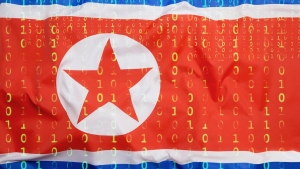There are several different estimates of how much crypto North Korea stole last year, which all come to the same conclusion though the numbers differ: It was a record year. According to a confidential United Nations sanctions report obtained by Reuters, which cited South Korean intelligence, North Korean-linked hackers stole virtual assets valued at US$630 million in 2022. Reuters also cited an estimate by an unnamed cybersecurity firm that the Hermit Kingdom pilfered more than a US$1 billion in digital assets last year.
North Korea's primary intelligence bureau, the Reconnaissance General Bureau, was responsible for most of the attacks. It deployed hacking teams tracked by the cybersecurity industry under the names Kimsuky, Lazarus Group and Andariel. In some cases, the hackers duped victims on LinkedIn and WhatsApp. In others, they used privately developed ransomware against SMEs, demanding money in Bitcoin to unlock company computer systems.
After it steals digital assets, North Korea usually finds brokers who are willing to convert or buy them without asking any questions. North Korea has to convert the stolen digital assets to cash because most of what it wants to buy is only sold in USD or other fiat currencies, not crypto.
Sometimes due to brokers taking big cuts, North Korea only gets one-third of the value of the funds it has stolen, but it has been stealing crypto in such large amounts that even a small percentage of the value can be significant.
North Korea’s crypto crime is especially concerning because it uses the money to fund its illicit weapons programs. To that end, earlier this month during a military parade, Pyongyang unveiled a new weapon suspected of being a solid-fuel intercontinental ballistic missile (ICMBs).
Solid-fuel missiles can be concealed while loaded with fuel and launched quickly, making it easier to conduct a surprise attack against the U.S. mainland – though such a move by Pyongyang remains highly unlikely given the U.S.’s military superiority.
North Korea poses a much greater risk to South Korea and Japan, and its regular provocations have prompted a rethink in both Seoul and Tokyo about their security needs.

